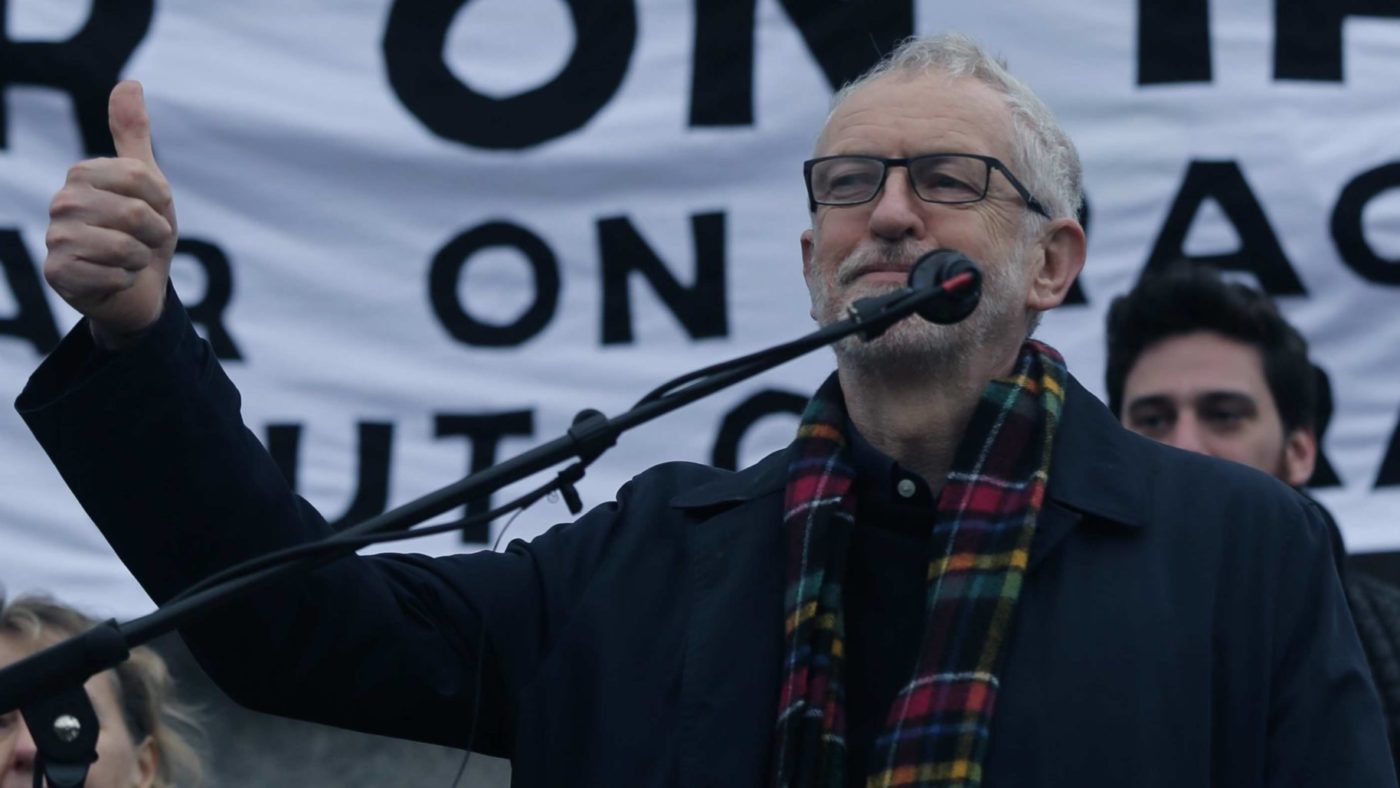Many years ago I did a panel debate with Jeremy Corbyn on Iran’s nuclear programme, to which there is no easy answer (though the joint comprehensive plan of action has done what it was supposed to do). The moderator read out a series of bloodcurdling anti-Semitic statements from President Ahmadinejad, then in office, to get Corbyn’s reaction. There was none. Corbyn, who was in my line of sight, evinced not a flicker of emotion when presented with these rantings and just went back to his slogans about the iniquities of Western foreign policy. I realised in that moment that he lacked a visceral revulsion towards anti-Semitism, and that his political obscurity was a just reflection on his powers of imagination.
During Corbyn’s titular leadership of the Labour Party from 2015 to 2020, I often recalled that expressionless mien. He apparently could not grasp why his record not just of indifference to anti-Semitism but of association with anti-Semites should cause controversy, apprehension and real fear. It was all there in his political history: his links with Paul Eisen, a declared Holocaust denier; his defence of Stephen Sizer, an Anglican vicar who’d spread anti-Semitic conspiracy theories about 9/11; his description of Hamas and Hezbollah at a Commons reception as his “friends”; his unequivocally anti-Semitic insinuation that Jewish campaigners who lacked “an English sense of irony” were an alien presence; his defence of a grotesque mural depicting Jewish bankers feasting off the backs of the poor.
The inevitable denouement was a moral disgrace still worse than the party’s electoral disaster in December. And it was exemplified in the BBC Panorama report last year setting out the testimony of former party officials about the way complaints of anti-Semitism had been dealt with – or rather, not dealt with. These conscientious and idealistic party workers were so appalled that they were driven to despair, depression (in a clinical sense) and even thoughts of suicide. For their pains, they were traduced by Corbyn’s supporters. They launched a libel action against the party, whose spokespeople had suggested they acted in bad faith. They were completely vindicated yesterday when the party apologised and paid them substantial damages.
But even now, Corbyn won’t get the message. The contrast between him and his successor is fortunately stark. Whenever Corbyn was asked about anti-Semitism, his superficial bonhomie vanished and he either snarled (as when Krishnan Guru-Murthy of Channel 4 News asked him about Hamas and Hezbollah) or indicated irritation. He couldn’t demonstrate a sincere contrition for the party’s anti-Semitism crisis as he evidently didn’t consider there was anything to apologise for. It’s worth watching again his catastrophic election interview with Andrew Neil. Many answers demonstrate his unsuitability for prime ministerial office (he is unaware, for example, that gilt issuance is government borrowing), but his testiness when asked about the Chief Rabbi’s concerns over Labour anti-Semitism shows a man of moral bankruptcy.
So it goes. Yesterday Corbyn issued a statement demonstrating his continuing incomprehension of the issues at stake. While having no legal expertise of any kind, he cavilled that the party’s decision to settle the libel action and pay damages was “political”. In a highly restricted sense, this is true, but not in a way that redounds to Corbyn’s credit. When Keir Starmer was elected leader, one of the first things he did was to extend an apology to British Jews. The simplicity and directness of the words “I am sorry” were powerful. Representative Jewish organisations rightly said that there was much work to do but that the apology was welcome.
I have almost always voted Labour. The rare exceptions include the London mayoral contest where Ken Livingstone was the party’s candidate. But I voted Labour even when it was wrong, during the barren decade of the 1980s, as well as under Tony Blair and Gordon Brown, whose governments generally acted wisely and well. I even voted Labour in 2017, on personal grounds for a moderate and pro-European MP (Meg Hillier). But by last year, I could simply not stomach the noisome replica – Labour in name but shorn of its constitutionalist and internationalist values – the party had become under Corbyn and his allies. Anti-Semitism was the touchstone issue, and a minimal test of political repute, but not the only one.
I profoundly hope that those times are past. I will resume voting Labour but I know that many others who deserted the party, including some whose identification with it was far more a habit than mine, will require additional evidence. Labour’s decision to settle with, apologise to and compensate the party’s workers is indeed wider than a purely legal matter: it potentially symbolises the difference between the party as it was under Corbyn and as it could be. The party’s response to the inquiry by the Equality and Human Rights Commission into allegations of institutional anti-Semitism will be crucial. And so will the way the party now treats Corbyn himself.
Labour has indulged previous disastrous leaders with sympathy and even sentimentality. There was nothing untoward about this in the case of, say, Michael Foot, a decent man committed to the party’s values. Corbyn is different. He has signalled disloyalty to the leadership and he should not be accommodated in it. Clement Attlee ensured that MPs with the sort of approach to foreign policy that Corbyn argued to me decades later were expelled from the party. It would be a sensible decision to do the same with Corbyn. But the immediate step of confronting and apologising for his poisonous legacy has been taken, and we should just rejoice in that news.
Click here to subscribe to our daily briefing – the best pieces from CapX and across the web.
CapX depends on the generosity of its readers. If you value what we do, please consider making a donation.


